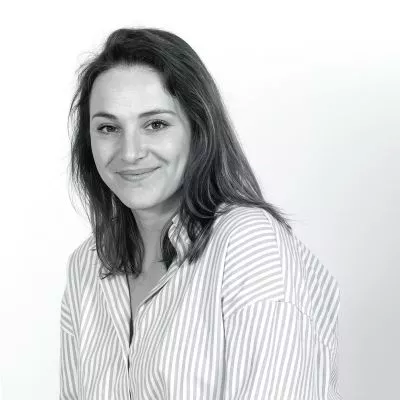Discussion with Charlotte Prévost, Head of the Support for Success Unit at Croix-Rouge Compétence in the Nouvelle-Aquitaine region

Discussion with Charlotte Prévost, Head of the Support for Success Unit at Croix-Rouge Compétence in the Nouvelle-Aquitaine region
After five years as a teacher in the national education system, working in schools in disadvantaged urban districts, where the pupils are socially and educationally vulnerable, Charlotte realised the extent to which, in order to develop, learners need to be taken into account in all aspects of their social, cultural and educational environment. At the same time, she was a PSC1 (Prevention and Civic Service) trainer for the French Ministry of Education, training both pupils and teachers. These experiences were what motivated her to work with adults. After obtaining a Master 2 in Educational Engineering Practices, with a specialisation in Mediation and Mediatisation of Knowledge, she spent one year taking part in a research project at the University of Bordeaux on Perseverance at School and then joined Croix Rouge Compétence in Nouvelle Aquitaine. Since September 2023, she has been Head of the Support for Success Unit.
What is the Support for Success Unit?
The Support for Success Unit is a service developed and supported by Croix-Rouge Compétence in Nouvelle-Aquitaine, which is intended to be extended to other regions. We wanted to work on reducing the risk of people dropping out of training in our institutes. To this end, following an internal and external survey, we identified that we could take action on a number of peripheral obstacles that sometimes cause learners to drop out of their training courses. We began by taking stock of what already existed in our institutes in terms of support. We then set up systems to centralise the needs identified and the responses that could be provided. This helped to highlight what we still need to develop.
We know that some learners are in very difficult, if not untenable, financial circumstances. Such a situation is a real mental burden, making it impossible for them to devote 100% of their time to their studies. For this, we have a Listening and Support Unit that directs learners to the right professionals depending on the obstacles they are facing. Over 150 learners took part this year. We rely on the volunteer network when we need emergency food aid, which is often the case. We also have a network of disability advisers who work to ensure the inclusion of learners who have been recognised as disabled workers, or who have special needs, by proposing suitable adaptations.
We are also committed to working on the issue of educational support and the development of psychosocial skills.
Who works with you and who do you work with?
I work with everyone, including the secretariats, the Red Cross Apprentice Training Centre, trainers, heads of education, management and the international relations office.
The idea is really to support the work of the different sectors, and to ensure that the support systems are equitable across all the sites in the region. Two people work with me in the unit: Emilie Kutina is on a work-study programme to become a vocational integration adviser and does a lot of work on integration and pre-qualification initiatives. Mathieu Garnier, our youth coordinator, is working on the issue of commitment, the feeling of belonging and the development of a sport-health dynamic within the institutes. They’re a great team!
If I say social innovation, you say...?
I would say: social impact, co-creation, circular economy and sharing of knowledge. It’s about generating a positive impact on society by tackling social challenges, and promoting long-term sustainable development, providing solutions that are financially viable, socially equitable and environmentally responsible. A multitude of projects have been developed in recent years, with strong impacts at a local level.
What are the projects you’re the most proud of?
I’m proud to have been involved in the creation of the Support for Success Centre, and to see it develop, particularly when learners who have taken business skills support courses gain confidence, pass their exams and take the time to come and see the team to tell us about their success.
If I say adult education, you say...?
It’s a fantastic opportunity to help even more people develop their skills throughout their lives. It’s a whole new world of possibilities, with plenty of scope for exciting new projects!
Looking to Europe?
I discovered European projects as a trainer in pre-qualifying initiatives, in other words, usually with people who have been alienated from employment and training.
The Croix-Rouge Compétence International Relations Office presented me with the “Clichés” method developed as part of the European project “Change of View” which has been very useful for my training. This is a method of using narrative practices to help people become aware of their power to take action, by telling their own story and sharing it with their peers. I’ve used it a lot, and have seen immediate effects on the majority of learners. These exchanges are touching, enabling us to discover our learners from a new angle, and can trigger some quite spectacular changes in attitude towards their training.
We also receive support for some of our work from Europe. The next stage may be a larger-scale project, with exchanges of practice between several countries. Starting from an identified need, in our case the fight against dropping out and disengagement among learners, there are a number of solutions available, and exchange between peers is a real solution for conducting in-depth reflection, thinking about things differently and discovering other ways of working.
So if any potential European partners are reading this interview, please don’t hesitate to contact me! charlotte.prevost@croix-rouge.fr

[ Translation :NSS EPALE France ]





Comments
Complimenti
Molto interessante!
Très intéressant, notamment…
Très intéressant, notamment sur l'intérêt de la coopération européenne pour des projets sur la formation des adultes les plus éloignés de la formation et de l'emploi.